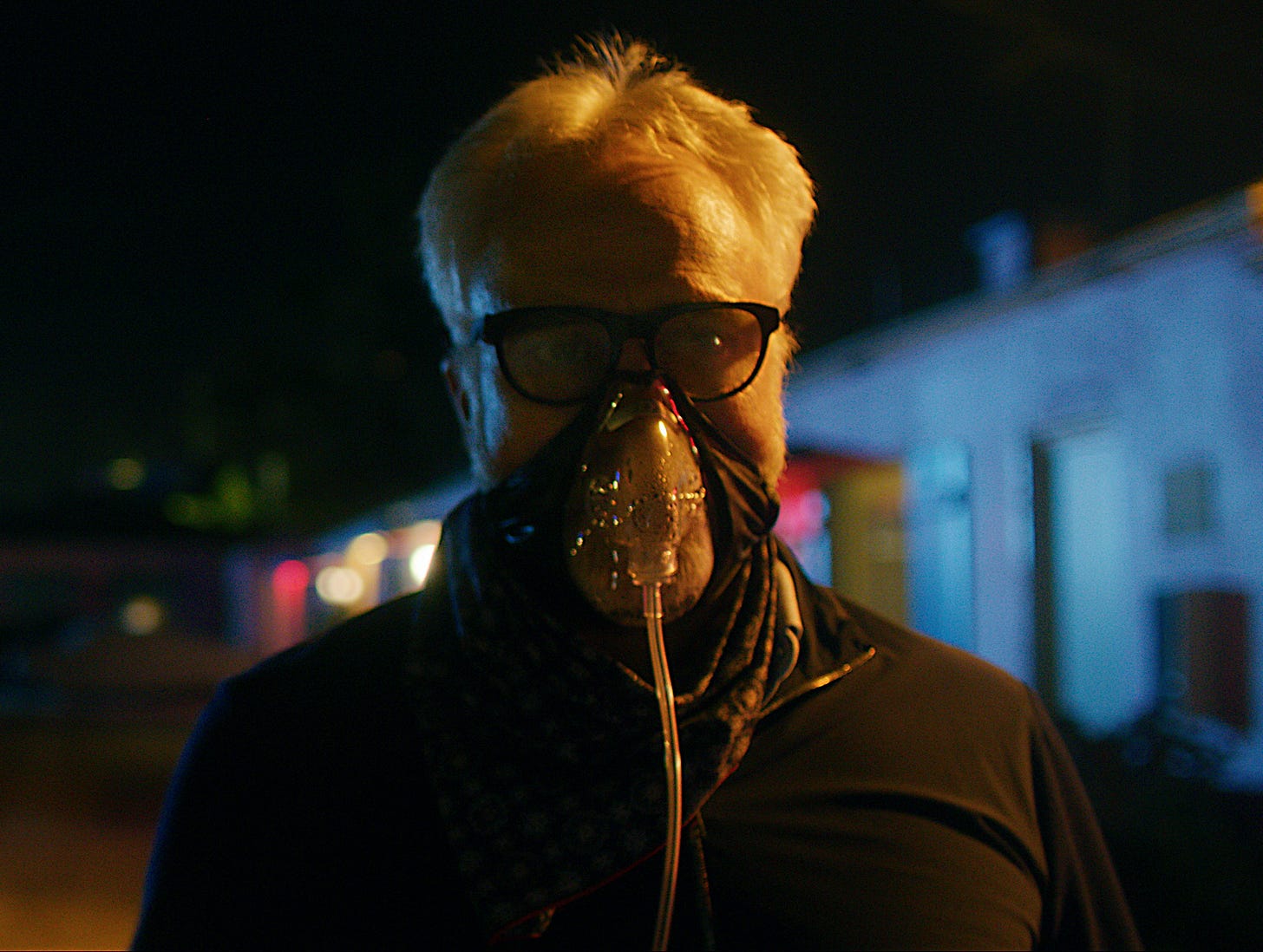‘Songbird’ Review
I don’t know if it’s good, exactly, but it’s kind of amazing.
Songbird is best-explained as “The Michael Bay COVID Movie.” This is not entirely fair to the actual director, Adam Mason, or the writers, Mason and Simon Boyes. Bay, after all, is merely the producer.
But if you say the phrase “Michael Bay COVID Movie” and then think about what that might entail, you might envision something a bit like Songbird. Sure, there aren’t any massive explosions. However, there is the signature choppy editing and a whole coterie of top-tier supporting actors and a slightly dark comic sensibility butting up to a movie that, honestly, kinda-sorta has something to say. It’s more Pain & Gain than Transformers, in other words.
Set in the near future, a COVID-ravaged America has resorted to years of rolling lockdowns after the disease mutates and becomes far deadlier. Rather than a 99.98 percent survival rate, nearly half of those who catch the mutated form of COVID die, and pretty quickly at that. Citizens are required to check in daily for health screenings via smartphone app; those who show signs of the disease are sent to Q-zones so as to stop the spread of infection. Bike courier Nico (KJ Apa), whose immunity to the disease has earned him the epithet “munie” (like “mutie,” from X-Men, just one of the many derivative touches here), has to save his girlfriend Sara (Sofia Carson) from “Department of Sanitation” employees empowered by martial law to clean the streets of those infected by the disease with extreme prejudice.
Written in March after production shutdowns stymied the film industry and shot in an almost-guerrilla style that earned criticism from the Screen Actors Guild because the producers “have not been transparent about their safety protocols,” Songbird is, basically, a high-class exploitation film. With its ripped-from-the-headlines premise and its cheap, on-the-move style of filmmaking, it has all the hallmarks of something that would’ve run on drive-in screens and New York City’s less reputable screens back in the 1970s.
But the supporting cast here is top notch. Craig Robinson (The Office) and Demi Moore (Striptease) and Bradley Whitford (The West Wing) and Alexandra Daddario (True Detective) and Paul Walter Hauser (Richard Jewell) round out the ensemble cast of characters, each embodying a different sort of person trying to get by in a crisis. You’ve got the grubby striver (Robinson) and the desperate mom (Moore) and the wide-eyed ingénue trapped in the City of Angels with nowhere to go (Daddario) and the wheelchair-bound vet who loves her (Hauser) and the liberal-with-a-heart-of-shit (Whitford) all intersecting with our disease-crossed lovers. (I’m not bothering with character names because, aside from the two leads, I literally couldn’t tell you the name of a single character in this film without looking it up.)
The true star of the show might be Peter Stormare, who plays a psychotic higher-up in the Department of Sanitation. A munie himself, he explains that his ascent in the ranks from trash-truck driver to a leader of the most important, and vicious, municipal organizations had nothing to do with skill or talent.
It was seniority. People above him kept dying so he kept moving up the food chain. He’s a god now, able to go anywhere, do anything.
Kill anyone.
Look, Songbird isn’t good, exactly. It’s the sort of movie I would’ve happily paid $10 to see at a mid-day matinee and feel kind of annoyed at being asked to pay $20 for at home. Despite being just 84 minutes it feels a bit stretched, the emptiness of Nico and Sara keeping us from forming any real emotional attachment to them.
There are nice touches here and there—the sly comment on municipal employees above; the concern Moore has for keeping her immunocompromised child safe in the face of unending plague; Hauser’s crippled, housebound vet realizing the sadness that comes with being well suited for life in a world where the lockdowns never come to a close—but there’s something alienating about watching most of these actors act without actually acting near one another. It’s like a hybrid of one of those screen-based, Unfriended- or Searching-style movies with a mumblecore production shot with the frenetic energy of the Auteur of Awesome.
And yet. There’s something ineffably transcendent about the whole enterprise, a vibe that can really only be summed up by describing the final, shocking bit of action. Spoiler after the interstitial here.
(Seriously, stop reading now if you don’t want to know how Songbird ends.)
If you are enjoying this review of Songbird, please consider signing up for Sonny's newsletter, Screen Time. Each week he writes about the latest updates in the world of Hollywood business while also reviewing something new and recommending something old.

The vet played by Hauser is an expert at using drones; his little whirlybird is painted with an American flag color scheme. As the film comes to a close, Hauser sends the drone to help Daddario escape from Whitford, who we come to learn is a sexually predatory record executive cheating on Moore with the vivacious Daddario. As Whitford tries to pull Daddario from the car, the drone fires a bullet, turning the old creep’s head to so much red mush.
There’s just something perfect about all of this. You have Richard Jewell (Hauser) using a drone done up as the American flag, the ultimate symbol of freedom, to eliminate a beloved liberal icon from The West Wing in order to save an innocent young woman from the predations of a Hollywood goon—all while a surgical mask, the ever-present-item of our moment, dangles from her ear. It’s like a cultural car crash, a pile-up of people and ideas and memes slamming together 70 mph in a way that leaves nothing but goo on the windshield.
Again: I'm not sure Songbird is good. But I'm kind of in awe that it exists at all.



